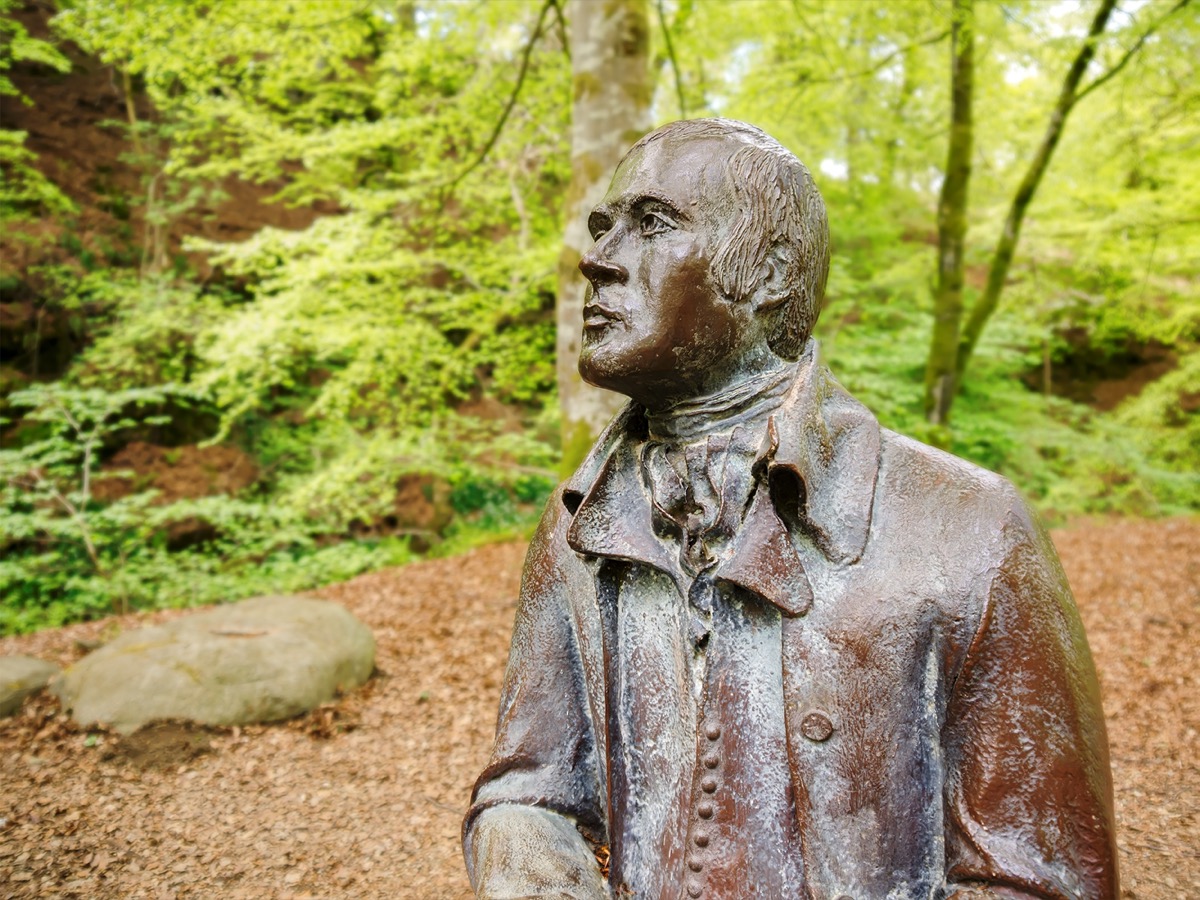The lyrics to the song come from a poem written by the great Scottish poet Robert Burns in 1788, which were then set to an old folk tune. The title’s literal English translation is “old long since”—more conversationally, “a long time ago.” For more trivia to wow your friends, check out 125 Facts That Will Make You Feel Instantly Smarter.ae0fcc31ae342fd3a1346ebb1f342fcb According to RobertBurns.org, the poet sent a copy of the original song to the Scots Musical Museum with the remark, “The following song, an old song, of the olden times, and which has never been in print, nor even in manuscript until I took it down from an old man.” One inspiration for the lyrics is likely the 1711 ballad, “Old Long Syne,” which has similar phrases. So Burns did probably learn the song from the unnamed old man, who probably learned it from somewhere else. For more history facts sent right to your inbox, sign up for our daily newsletter. When the Scots immigrated to America in the 19th century, they inevitably brought the song with them. But its enormous modern popularity can largely be attributed to a Canadian bandleader named Guy Lombardo and his band, the Royal Canadians. Long before the infamous ball-drop, New Year’s Eve was marked in New York City by his annual end-of-the-year concert, which included his traditional rendition of “Auld Lang Syne.” He was so synonymous with the holiday that he was eventually nicknamed “Mr. New Year’s Eve,” so the rest of the world followed suit. In 1965, he explained how he himself came to associate “Auld Lang Syne” with the end of the year to Life Magazine: “‘Auld Lang Syne’ is our theme song—and was long before anyone ever heard us on the radio,” Lombardo said. “In our particular part of western Ontario, where there’s a large Scottish population, it was traditional for bands to end every dance with ‘Auld Lang Syne.’ We didn’t think it was known here. When we left Canada we had no idea we’d every play it again.” If you want to see the legendary singer in action, check out his rendition of “Auld Lang Syne”–his final one–on the eve of 1977, after performing for 48 years in a row. And for more songs with hidden meanings, check out 20 Songs You Didn’t Know Have Secret Messages. It’s a famous conversation in the movie When Harry Met Sally: what, exactly, is “Auld Lang Syne” trying to remind us at the start of each new year? While the roundabout lyrics still causes confusion, it is believed that the opening lines of the song are meant to be rhetorical: “Should auld acquaintance be forgot, and never brought to mind? Should auld acquaintance be forgot, and auld lang syne?” Apparently, that means we should have a drink in honor of whatever is passing, and remember old friends. For the wit and wisdom you need in 2021, check out 40 Inspirational New Year Quotes to Start Your Year Off Right.



